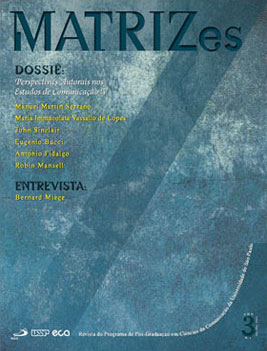Heidegger’s cell phone – ubiquitous communication and existential distance
DOI:
https://doi.org/10.11606/issn.1982-8160.v3i1p81-98Keywords:
cell phone, Heidegger, identity, authenticity, ubiquitous communicationAbstract
Is the cell phone an indispensable identitary element in the contemporary society or a factor of existential alienation and inauthenticity? Starting from the Heidegger’s analysis of human identity in Being and Time (first part) and from a wide-ranging literature review about mobile communication (second part), we try, in the third part of the text, to refuse Manichean positions, both the ones that condemns the cell phone as an alienation instrument, and the ones that greet them as a crucial object for the economic and social development. In the end, we outline an ethics of the cell phone from the conception of existential distance.Downloads
Download data is not yet available.
Downloads
Published
2011-12-15
Issue
Section
Dossier
License
Authors who publish in this journal agree to the following terms:
- Authors retain the copyright and grant the journal the right to first publication, with the work simultaneously licensed under the Creative Commons Attribution License (CC BY-NC-SA 4.0) which allows sharing of the work with acknowledgment of authorship and initial publication in this journal for non-commercial purposes.
- Authors are authorized to assume additional contracts separately, for non-exclusive distribution of the version of the work published in this journal (eg, publishing in institutional repository or as a book chapter), with acknowledgment of authorship and initial publication in this journal.
How to Cite
Fidalgo, A. (2011). Heidegger’s cell phone – ubiquitous communication and existential distance. MATRIZes, 3(1), 81-98. https://doi.org/10.11606/issn.1982-8160.v3i1p81-98






















